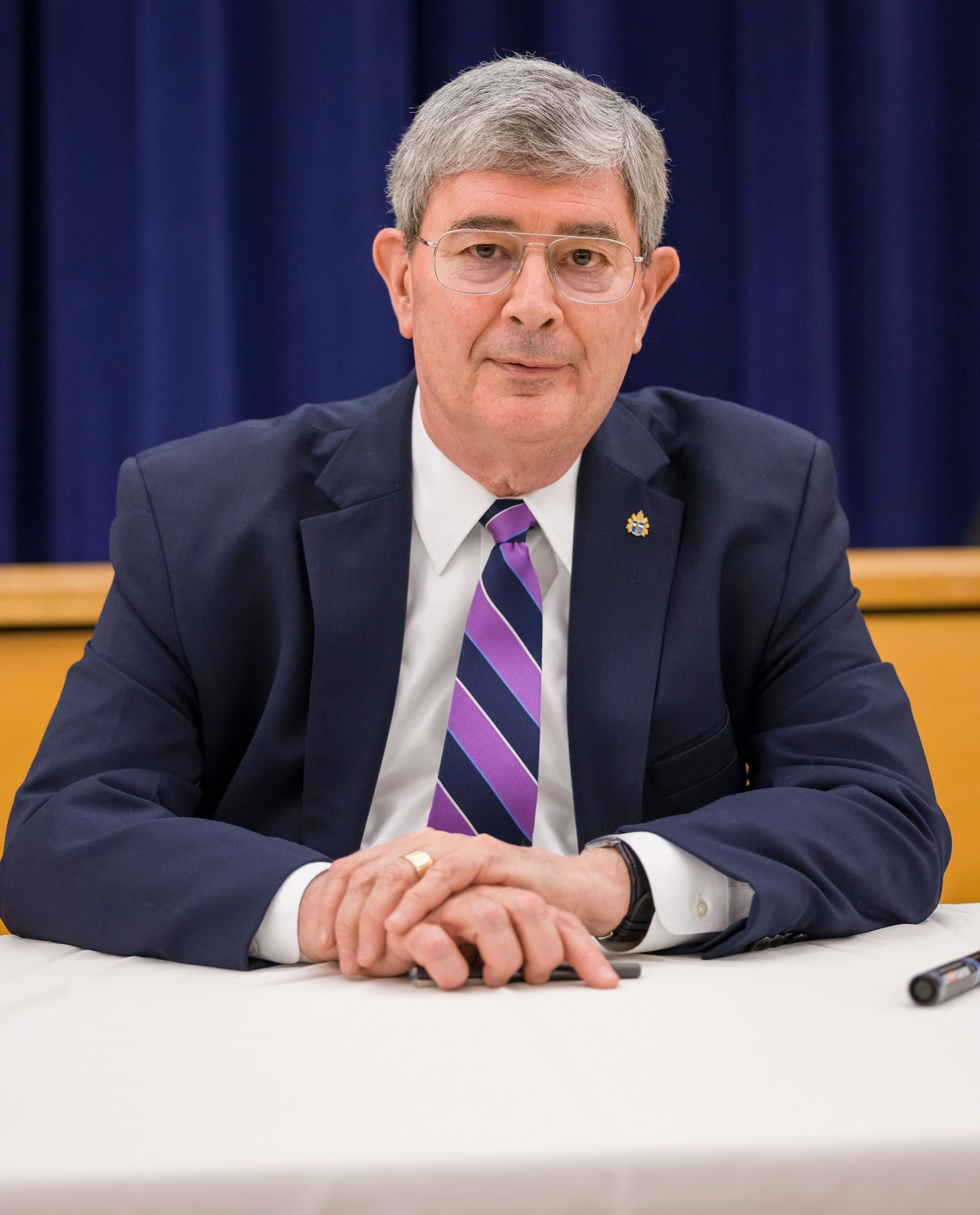Westerplatte, a narrow peninsula framing the Bay of Gdańsk, was the scene of one of the first battles of World War II in Europe. On September 1, 1939, the German battleship Schleswig-Holstein opened fire on the small Polish garrison at Westerplatte, expecting that the vastly outnumbered and outgunned Poles would run up a white flag. That was a misimpression. The Poles—mostly youngsters with no combat experience—not only resisted the offshore bombardment but repelled amphibious assaults by German marines, taking serious casualties as a result. Finally, on September 7, the Polish garrison surrendered; but they had so impressed the aggressors that the German commander allowed the Polish officer leading the Westerplatte garrison to keep his ceremonial sword.
Celebrating a Liturgy of the Word with a vast throng of young Poles at Westerplatte during his 1987 pastoral pilgrimage to his native land, John Paul II, speaking slowly and forcefully in his beautiful, sonorous Polish, invoked the memory of the Westerplatte generation while laying down a memorable challenge:
Here in this place, at Westerplatte, in September 1939, a group of young Poles, soldiers under the command of Major Henryk Sucharski, resisted with noble obstinacy, engaging in an unequal struggle against the invader. A heroic struggle. They remained in the nation’s memory as an eloquent symbol.
It is necessary for this symbol to continue to speak, for it to be a challenge . . . to new generations . . .
Each of you, young friends, will also find your own “Westerplatte.” A dimension of the tasks he must assume and fulfill. A just cause, for which one cannot but fight. Some duty, some obligation, from which one cannot shrink, from which it is not possible to desert. Finally—a certain order of truths and values that one must “maintain” and “defend”: within oneself and beyond oneself . . .
At such a moment (and such moments are many, they are not just a few exceptions) . . . remember . . . [that] Christ is passing by and he says, “Follow me.” Do not forsake him.
Many, many times over the past two decades I have been asked to explain John Paul II’s unique magnetism for the young—especially when, in his last years, he looked nothing like the “John Paul Superstar” of Time magazine’s October 15, 1979, cover story, the fifty-nine-year-old pope who had just rocked Madison Square Garden. My answer has always been twofold.
First, John Paul was transparently honest. He could speak as he did at Westerplatte in 1987 because those to whom he spoke knew that he was not asking them to take any risk he had not taken; he was not asking them to bear any burden that he had not borne; he was not asking them to show a courage that he had not shown. That transparency made him a compelling figure, not only on Poland’s Baltic coast in 1987 but at World Youth Days from Buenos Aires in 1987 to Toronto in 2002.
Second, John Paul II did not pander to the young. For young adults in the contemporary West culture, it’s all pander, all the time: in education, in popular entertainment, in advertising, even in religion. The implicit message of this pandering is that a life without sacrifice, discipline, or courage is possible. But what kind of life is that? John Paul, who had more pastoral contact with young adults than any pope in modern history, knew that young people wanted something more than ease: He understood from experience that deep within the young heart is a yearning for meaning, for nobility, for greatness.
So rather than pandering, John Paul challenged. In a virtual infinity of variations on one great theme, he said to young people in every imaginable cultural situation, “Never settle for less than the spiritual and moral grandeur that the grace of God makes possible in your life. You will fail. But never surrender. Get up, dust yourself off, seek reconciliation and penance. But never, ever lower the bar of expectation. Christ is with you, and he will never forsake you. Don’t forsake him.”
The campus ministries flourishing throughout the world today are those that follow that model and challenge rather than pander. The young adult ministries that are successfully taking up the task of being Catholics permanently in mission are those that offer Catholicism in full rather than Catholic Lite. As World Youth Day 2023 unfolds this week in Lisbon, I hope a similar challenge to conversion, courage, and evangelical mission rings out. For the message of Westerplatte is a message for everyone gathered in Portugal’s capital, and indeed for Catholics throughout the world.
George Weigel’s column “The Catholic Difference” is syndicated by the Denver Catholic, the official publication of the Archdiocese of Denver.

George Weigel is Distinguished Senior Fellow of Washington, D.C.’s Ethics and Public Policy Center, where he holds the William E. Simon Chair in Catholic Studies.
First Things depends on its subscribers and supporters. Join the conversation and make a contribution today.
Click here to make a donation.
Click here to subscribe to First Things.

